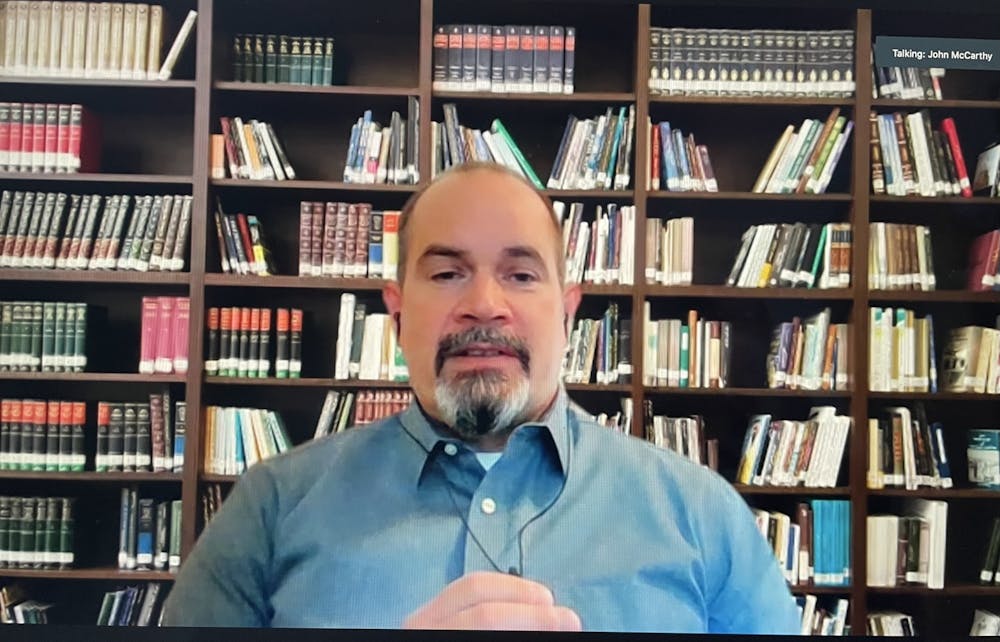The O'Neill School of Public and Environmental Affairs welcomed an alumni panel to speak on a virtual seminar, “Health Equity in a Post-Pandemic World” Wednesday. During the event, the speakers discussed social disparities in healthcare and possibilities for the future of Medicaid in the US.
Kosali Simon, professor of health economics at IU, said health equity is one of the most important issues to examine post-pandemic.
“Health equity is the form of equity that I think we feel strongest about starting with,” Simon said. “Because it’s about our well-being, it’s about how long we live, it’s about how we feel. It’s about really our ability to do everything else. Health is at the center of all of the other things we care about.”
After the COVID-19 pandemic, inequities within American healthcare were illuminated. For example, Simon said COVID-19 mortality rates within Black and Hispanic communities were far greater than what would have been proportionate to the size of their populations.
According to the Kaiser Family Foundation, which Simon referenced, Hispanic populations made up 27% of COVID-19 cases, 18% of which resulted in deaths, despite accounting for only 17% of the US population. COVID-19 cases in Black communities resulted in a 14% mortality rate despite making up 12% of the population.
Simon also said lower-income communities were affected by other social determinants of their health. Depending on a person’s housing or job, they may have been more susceptible to COVID-19 exposure or emotional stress during the pandemic. She said people living in crowded houses or working on the frontlines were more likely to experience the brunt of the pandemic.
Because of these social inequities highlighted by the pandemic, the panelists focused on the role of Medicaid today.
“Medicaid plays such a big role in equity because it’s designed for the people with the lowest incomes and worst health, because of the way you qualify for it,” Simon said. “You can’t start a conversation about health equity without thinking about Medicaid.”
Simon and the panelists said they’re waiting to see what Medicaid plans end up in U.S. President Joe Biden’s Build Back Better bill.
“We’re at a point in history right now where some states have refused to expand Medicaid under the Affordable Care Act,” Simon said. “Those are mostly southern states that have large low income minority populations.”
Simon said Biden’s bill could potentially offer free coverage health care plans to those low-income individuals living in states that chose not to expand Medicaid. Indiana expanded is not one of those states.
John McCarthy, former Medicaid director of both Ohio and Washington, D.C. said that he’s seen several health related disparities firsthand in his own work, and has developed ways that health care programs can work to solve them.
After observing a disproportionate degree of African American infant mortality rates in Ohio, McCarthy said his department began to examine solutions to the problem.
“We started on specifically going in at the zip code level, working with organizations, asking, ‘What do you do in these areas?’” McCarthy said. “We started doing grants to local entities to try to improve the outcomes coming from these areas.”
Chris Priest, former State Medicaid Director for Michigan, said connecting with communities is essential to solve some of these disparities. He said that in order to learn about the needs of community members, health care workers must listen and cooperate with individuals from those places, as this will be essential for health care going forward.
He said he encourages IU students interested in public health policy to get connected with the resources and alumni at the O’Neill School of Public and Environmental Affairs.
“You have amazing programs that are already at your fingertips at O'Neill that you can take advantage of to really set you up to do this,” Priest said. “Take it from me personally, that opportunity that was afforded to me fundamentally changed my life, my career.”






